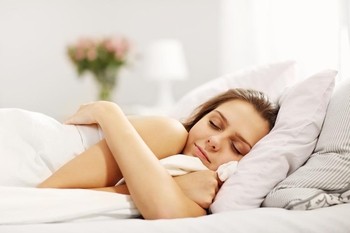
We all know that sleep is essential for our health and well-being. When we don’t get enough sleep, we gain weight, have trouble with memory, and have worse moods.
Good habits for good sleep
There are ways to ensure we get a good night’s sleep. The National Heart, Lung, and Blood Institute recommends making enough time to sleep–sleep is often the first thing to go when we get stressed. The NHLB also recommends waking up and going to bed at the same time every day, using the hour before bed as quiet time to wind down. Avoid large meals before bedtime, and avoid nicotine and caffeine all the time. Spend time outside every day.
Make sure your home is set for sleep. If you are moving to a new neighborhood, work with your realtor to discuss what homes for sale provide a good bedroom away from busy roads, a yard to spend time outside, and a nice place to take warm and relaxing baths. Use your bed only for sleep and romance; this will make your brain associate the bed with sleep and relaxation.
Be sure to invest in a bed with a quality mattress and bedding that make you feel your most comfortable. Different sorts of mattresses work for different people. Monitor the temperature in your house as well. Most people sleep better in cooler temperatures, but we are all different. If you need total darkness to sleep, invest in heavy blinds for the windows, but be sure to get an alarm clock that includes a light function; it’s harder to wake up in total darkness. Some people also find white noise useful for falling asleep–you can make white noise happen in your bedroom by turning on a fan or playing a white noise recording.
Sleeping disorders
If you are doing your best to implement good sleep habits and are still having trouble sleeping, you might have a sleeping disorder. One major type of sleeping disorder is sleep apnea. Sleep apnea is a disorder that occurs when a person’s breathing is disrupted during sleep, meaning the brain and the body lose oxygen. One form of sleep apnea occurs when soft tissues in the back of the throat collapse. Another form occurs when the brain stops sending signals to the airways. If you have sleep apnea, look into getting a CPAP machine. CPAP stands for continuous positive airway pressure. These machines push air into your airways to force them open.
Another common sleep disorder is insomnia. Insomnia occurs when a person has difficulty falling and/or staying asleep. Insomnia can simply occur on its own, or it can accompany other diseases, and it ranges from short-term (acute) to the long-term (chronic). Sometimes, for acute insomnia, doctors may prescribe sleeping pills. For chronic insomnia, doctors usually try to address the underlying problem. Employing excellent sleeping habits can also help improve insomnia.
Periodic Limb Movement Disorder (PLMD), is one other sleeping disorder. PLMD is characterized by rhythmic moving of the limbs. The movements occur throughout the night and can vary in severity. PLMD can lead to waking in the middle of the night and erratic sleep, although people with this disorder don’t usually realize that they have it; it usually affects their partner first. Caffeine makes the condition worse. PLMD can be effectively treated with a drug regimen.
